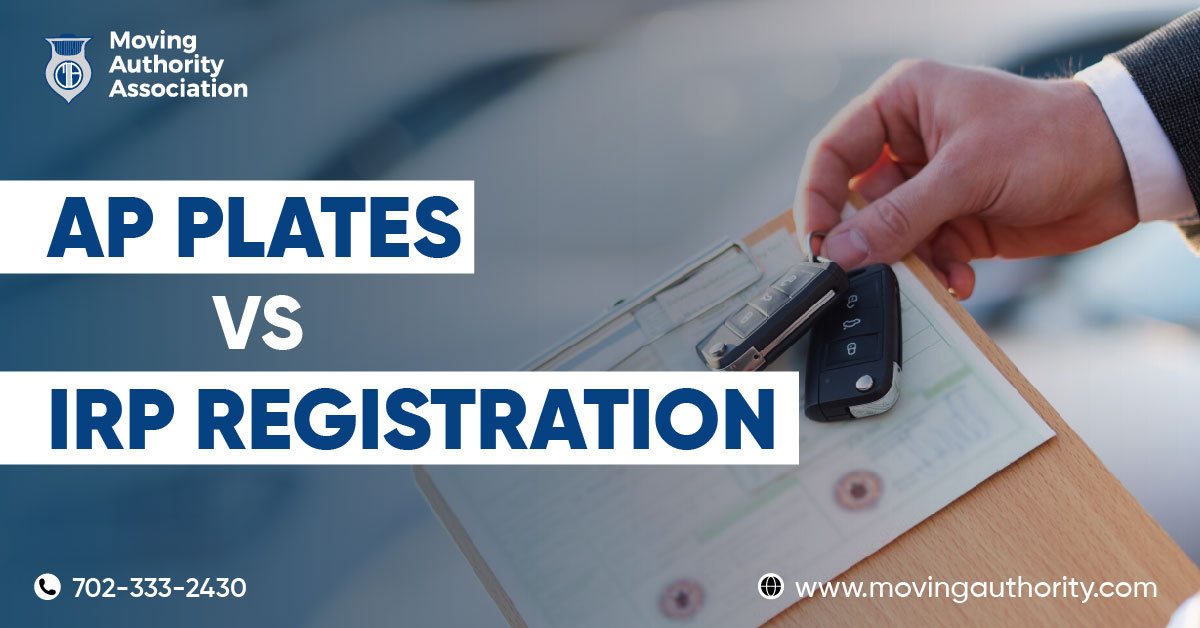
AP Plates vs. IRP Registration
Are you confused about the difference between AP plates and IRP registration? As a trucking company, it's important to understand the nuances of each option for your fleet. Learn more about Starting a Trucking Company. While both options allow for multijurisdictional operations, they have different requirements and fees. In this article, we'll break down the key differences between AP plates and IRP registration to help you make an informed decision for your business.
AP Plates
AP Plates, also known as apportioned plates, are special license plates that are issued to commercial vehicles operating in multiple jurisdictions. These plates indicate that the car is properly registered and authorized to travel across state lines. Do you Want to know the BOC-3 Filing? AP Plates are required for vehicles that are subject to the International Registration Plan (IRP).
In order to obtain AP Plates, a vehicle must meet certain criteria, such as having a gross vehicle weight of over 26,000 pounds or having three or more axles. Learn more about Biennial Update. The vehicle must also be registered with the IRP, which is a cooperative agreement between the United States and Canada that allows commercial vehicles to operate across state and provincial lines.
The benefits of using AP Plates include simplified registration and reporting processes, as well as the ability to operate in multiple jurisdictions with a single registration. AP Plates also provide proof of compliance with IRP requirements, which can help prevent fines and penalties for non-compliance.
IRP Registration
IRP registration is a requirement for trucking companies that operate in multiple jurisdictions in the United States and Canada. Read more about the Broker Freight Package. It allows carriers to register their commercial vehicles in all the jurisdictions they travel through using a single registration. This simplifies the administrative process for carriers and will enable them to operate efficiently across multiple state and provincial lines.
To obtain IRP registration, carriers must meet specific requirements, including valid USDOT numbers and insurance coverage. They must also provide accurate information about their vehicles, including their gross vehicle weight and the jurisdictions in which they plan to operate. Once registered, carriers must renew their IRP registration annually, and report mileage traveled in each jurisdiction to ensure proper payment of fees.
The benefits of using IRP registration include increased efficiency and cost savings for carriers. By simplifying the registration process and allowing for a single registration, carriers can avoid the need for multiple permits and save time and money on administrative tasks. Do you want to know Broker Mover Package information? Additionally, IRP registration helps ensure compliance with state and provincial regulations, reducing the risk of penalties and fines.
AP Plates vs. IRP Registration
AP Plates and IRP Registration are two options for trucking companies operating across state lines. There are key differences between the two, and understanding these differences is essential for trucking companies to choose the best option for their needs.
One of the main differences between AP Plates and IRP Registration is the level of flexibility. AP Plates are more flexible since they allow a carrier to operate in any state without any restrictions. Do you want to know the CA Number? In contrast, IRP Registration requires a carrier to declare the jurisdictions in which they plan to operate and pay fees accordingly.
Another difference between AP Plates and IRP Registration is the cost. AP Plates have a higher initial cost but do not require annual fees. In contrast, IRP Registration has a lower initial cost but requires annual fees based on the number of jurisdictions in which the carrier operates.
Choosing the best option for your trucking operation depends on a variety of factors, including the number of jurisdictions in which you plan to operate, the type of cargo you transport, and your budget. It is essential to weigh the pros and cons of each option carefully before making a decision to ensure compliance and avoid any penalties or fines.
Common Issues With AP Plates And IRP Registration
AP plates and IRP registration are complex systems that require careful attention and understanding to avoid common issues and mistakes. Know what is a Carrier Agreement. One common issue with AP plates is incorrect usage, which can result in fines and penalties. For example, using AP plates for non-qualified vehicles or failing to comply with state-specific rules can lead to serious consequences.
Similarly, IRP registration also comes with its own set of potential pitfalls, such as failure to properly register in all necessary jurisdictions, leading to fines and potential legal issues. It's also important to stay current on changes to regulations and reporting requirements to ensure compliance with the law.
To avoid these issues, trucking companies should prioritize ongoing employee education and training, regularly review compliance requirements, and seek expert advice when necessary. Keeping accurate records and maintaining timely reporting can also help avoid problems down the line.
The Role Of Technology In The Trucking Industry
Technology has dramatically impacted the trucking industry, including the registration and compliance process for AP plates and IRP registration. Read more about the Claims Package. Many trucking companies now use technology to streamline their registration and compliance efforts, making the process faster and more efficient.
One of the ways technology can assist with AP plates and IRP registration is through online portals that allow trucking companies to complete and submit their registration forms electronically. This eliminates the need for paper forms and manual data entry, saving time and reducing the risk of errors. Learn more about DOT Number Deactivation. Additionally, software tools can be used to track and manage compliance, such as keeping track of expiration dates and required documents.
Another way technology can assist with AP plates and IRP registration is through GPS tracking systems. Do you want to know Dot Authority? These systems can provide real-time information on the location and movement of a truck, which can help track and verify mileage for IRP reporting.





